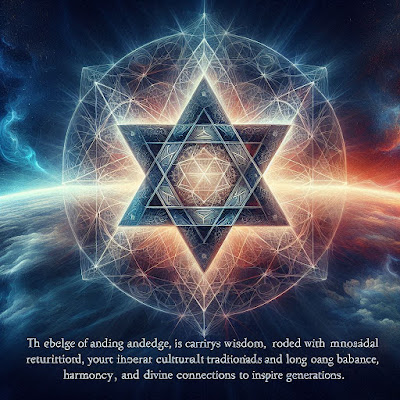Thoth, the Pyramids, and Plato: The Transmission of Ancient Wisdom
- Get link
- X
- Other Apps
Exploring the Influence of Thoth’s Sacred Geometry, Alchemy, and Knowledge on the Birth of Western Philosophy
Thoth, often associated with the Egyptian god of wisdom, writing, and knowledge, has strong connections to the pyramids and the teachings that are said to have influenced later philosophers like Plato. His influence, through ancient Egyptian wisdom and his various symbolic representations, offers insights into both mystical and intellectual traditions, shaping many philosophies across history.
Thoth and the Pyramids
Thoth as a Divine Teacher: Thoth was revered as the inventor of writing, the divine scribe, and the teacher of sacred knowledge. In Egyptian mythology, Thoth was often depicted as a man with the head of an ibis or a baboon, symbols of wisdom and knowledge. His primary role in Egyptian society was as a mediator between the divine and earthly realms, facilitating the transmission of wisdom from the gods to humanity. This connection made him deeply entwined with the concept of sacred geometry, architecture, and the mystical knowledge embedded in the construction of the pyramids.
The Great Pyramid of Giza: There is a longstanding mystical tradition that attributes the construction of the pyramids, particularly the Great Pyramid of Giza, to Thoth (or the gods associated with him). Some esoteric schools of thought, such as the Hermetic tradition, claim that the pyramids were not merely tombs, but also repositories of ancient knowledge—such as mathematics, astronomy, and divine wisdom. These schools argue that the geometric precision of the pyramids reflects divine knowledge, believed to have been imparted by Thoth.
Sacred Geometry and Knowledge of the Universe: Thoth’s teachings are linked to sacred geometry—the idea that the universe is built on precise mathematical principles. The pyramids are often seen as a physical manifestation of sacred geometry. The proportions, alignment, and angles of the pyramids encode mathematical knowledge that mirrors the harmonious structure of the cosmos. Many believe that Thoth, through his role as the god of wisdom, provided the Egyptians with the knowledge needed to construct these monumental structures.
The Emerald Tablets of Thoth: The Emerald Tablets, attributed to Hermes Trismegistus (a syncretic figure combining Thoth and the Greek god Hermes), contain esoteric teachings that are believed to have influenced not only ancient Egyptian society but also Greek philosophy. These tablets are said to hold deep alchemical wisdom and mystical teachings about the nature of reality, the universe, and the spiritual transformation of the self. The ideas within these texts are believed to have been encoded in the structure and construction of the pyramids, further linking Thoth’s teachings to the sacred knowledge within the pyramid complex.
Plato and Thoth: The Transmission of Knowledge
Plato’s Allegory of the Cave: Plato, the ancient Greek philosopher, is known for his allegories and philosophical ideas regarding the nature of reality and knowledge. His allegory of the cave speaks of people trapped in a dark cave, seeing only shadows of the outside world, which represents the limitations of human perception and understanding. In many ways, Plato's notion of enlightenment and knowledge mirrors the journey towards higher wisdom that Thoth symbolized: emerging from the darkness of ignorance into the light of understanding.
The Hermetic Tradition: The Hermetic tradition, which Plato may have been familiar with, is a blend of Egyptian and Greek philosophical concepts, rooted in the wisdom of Thoth. Hermes Trismegistus, as mentioned earlier, is a syncretic figure who combines Thoth and Hermes. This figure is often credited with the Hermetic texts, which focus on mystical knowledge, alchemy, astrology, and the principles of sacred geometry. Plato was likely influenced by these teachings in shaping his philosophy on the nature of reality, cosmology, and human existence.
The Lost Atlantis and Egypt’s Influence on Plato: Plato famously wrote about the lost city of Atlantis, describing it as an advanced civilization that existed long before his time. Some esoteric traditions suggest that Plato’s accounts of Atlantis were influenced by Egypt’s ancient wisdom, passed down through figures like Thoth. These teachings would have included knowledge about the cosmos, sacred geometry, and alchemy, which Plato might have encountered through his travels in Egypt and other parts of the Mediterranean world.
Thoth’s Influence on Greek Philosophy: Plato’s student, Aristotle, and his successors were deeply influenced by Egyptian philosophy and the teachings of Thoth. Many of the philosophical concepts of balance, harmony, and the relationship between the material and spiritual realms that were central to Egyptian thought find their way into Greek philosophy. Concepts such as the ideal form and the importance of the mind's alignment with the universe resonate with Thoth’s wisdom, which linked cosmic order to intellectual and spiritual evolution.
Conclusion
Thoth's teachings and influence on the pyramids, sacred geometry, and the mystical knowledge encoded within them had far-reaching effects, transcending ancient Egypt. The knowledge attributed to Thoth found its way into Greek philosophy through figures like Plato, whose work incorporated many esoteric and mystical ideas. The relationship between Thoth, the pyramids, and Plato's philosophy speaks to the enduring power of sacred knowledge—one that bridges the ancient Egyptian tradition with the Greek philosophical tradition and continues to resonate today in spiritual and intellectual circles.
By exploring these connections, we can begin to unravel the profound impact of Thoth’s wisdom, not just on ancient civilizations, but on the very foundations of Western philosophy, science, and spirituality.
Further Reading:
- The Complete Idiot's Guide to Alchemy by Dennis William Hauck
- The Emerald Tablets of Thoth-Hermes by Hermes Trismegistus
- The Kybalion by Three Initiates
- The Hermetica by Timothy Freke and Peter Gandy
- The Divine Pymander by Hermes Trismegistus
- The Book of Thoth by Aleister Crowley
These books explore the profound teachings of Thoth, alchemy, Hermeticism, and sacred geometry, offering a comprehensive understanding of the ancient wisdom that influenced both the construction of the pyramids and the development of Western philosophical traditions.
- Get link
- X
- Other Apps





Comments
Post a Comment